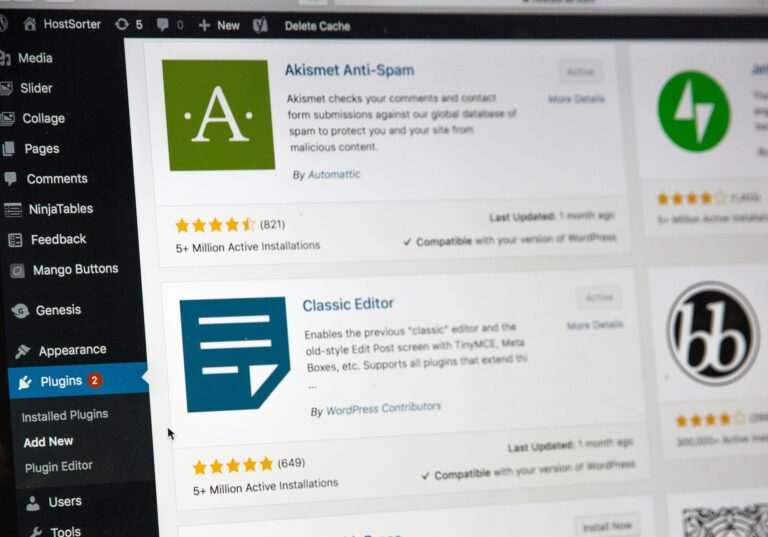So how can anyone rank a blog in 6 months?
Businesses with a blog on their website have one aim: to be the first result to appear when people search for a particular keyword.
That is not easy and it is not guaranteed that they will be at the top for so long, so some of them want to at least be on the first page of search results.
In this article, we will discuss the following:
- How long does it take for a blog to rank?
- How to rank a blog in 6 months
- Can a blog rank with only on-page SEO?
Let’s get started!
How Long Does It Take for a Blog to Rank?
Before we talk about how to rank a blog in 6 months, is it even possible?
I have been doing search engine optimization for over five years now. I have ranked blog posts in less than 6 months, so I believe this is possible.
In fact, if you have been blogging for many years and search engines already know about your existence on the internet, your new posts could appear on the front page within 24 hours.
It happened to A Lover in Disguise many times, especially for long-tail keywords.
The “2 to 6 months” and “over a year” estimations from Ahrefs mostly apply to new blogs, or blogs that search engines think are new.
Apparently, if you make huge changes to your old website such as changing lots of URLs, the branding, the linking structure, and so on, you are new in their eyes.
They will get to know your website once again, and it could take a few weeks to months before they can have a solid understanding of its contents.

How to Rank a Blog in 6 Months
How to rank a blog in 6 months? That question was what took you here, and you will find the answer in this section.
No one is keeping the SEO formula a secret. Anyone can find the process on the internet, so even beginners can do it.
In fact, when I had my first content writing job in 2019, I had zero experience in SEO. I was able to get the hang of it in less than a week.
Of course, that was with the help of an SEO plugin.
On-page SEO is an important step in the process, so we will focus on that. I will break down the steps to optimizing a blog post:
1. Do Keyword Research
Keyword research is a crucial step when doing search engine optimization.
Everything else depends on it: the content, the headings, the images, and whether it reaches the right audience or not. You should keep in mind the last one!
Say you are in the legal field. You may get 1,000+ visitors if you publish a high-quality article about how to tie shoelaces. But those visitors will not be converted into paying customers because they are not your customers!
Write about how to file a civil case against someone, how much a notary costs, and why they even need to trust lawyers if you want them to pay for your service!
2. Mention the Keyword in the Article and Meta Tags
Mentioning the keyword many times throughout the page (but don’t overdo it) allows search engines to understand what it is about, and then they will show it to those looking for that information.
If you want to rank fast, target long-tail keywords that have low competition and, ideally, a high search volume.
How will you know the competitiveness and the search volume of keywords? Google Keywords Planner can give you good estimations, although the data provided is more for those who utilize Google Ads.
Semrush and Ahrefs are also great tools for this purpose.
3. Remember to Optimize Images
You know that visuals make articles more engaging, so you add all the relevant images you can find. But search engine robots rely on ALT texts to understand what is in the image, so add them!
Also, a slow website leads to poor user experience. Before you add images, lower the file sizes. If you don’t want to do that to every image you will use, install a plugin that “minifies” images.
I recommend W3 Total Cache for WordPress websites.
4. Add Internal and External Links
Linking to other pages, either within or outside your blog, may seem a bad idea because your readers will leave the page if they click on it. But that is not what linking to other resources is about.
In the case of internal linking, it increases the time your readers spend on your website. That will send a signal to search engines that your blog is, well, interesting.
I met clients who complained about having a high bounce rate, and they were not happy. A well-thought-out internal linking strategy can solve that.
As for external links, they add power to your argument.
“You are depressed because you are always sad” sounds less convincing than “You may be depressed based on the depression signs shared by WebMD.”
5. Aim for Long-form Content
Google made it clear that the number of words doesn’t matter when aiming to rank. If it were a ranking factor, many people would add fluff to their articles.
Short and straightforward is more valuable than that.
Still, long-form content is more appealing to readers because it seems more informative, and it usually is.
You can’t write 200 words and call it a guide. You can’t make the readers satisfied if you answer their questions with a single sentence.

Can a Blog Rank With Only On-page SEO?
You may be wondering if you could simply write and follow the SEO guidelines, and poof! Your blog would rank in a few weeks or months!
If you published every week or every day consistently, you could be right.
In 2021, I was able to rank 4 of my blog posts on A Lover in Disguise in 4 months with on-page SEO and nothing else.
Those 4 blog posts are still on the first page up to this date!
Contrary to what many SEO experts say, relying only on on-page SEO is okay unless you have big SEO goals.
Do you have big SEO goals? If not, then you can rank a blog in 6 months or earlier with just on-page SEO.
Based on experience, even with a low domain authority!
A Lover in Disguise had <5 DA when the blog posts first appeared on the first page. It got to the level of Psychology Today and Healthline!
Conclusion
If your website is newly created, the realistic goal is to rank a blog in 6 months. You need to give search engines enough time to understand it.
That is especially the case if you don’t plan on publishing 10+ articles on the launch day. How can search engines know your niche if you only have 1 article?
Even you may still be unsure about your direction at that point!
Liked the article? How about a free SEO audit from me?
You want to rank a blog in 6 months. What if there are issues that prevent that? I can help you find it out with my free SEO audit. Click here to learn more!














